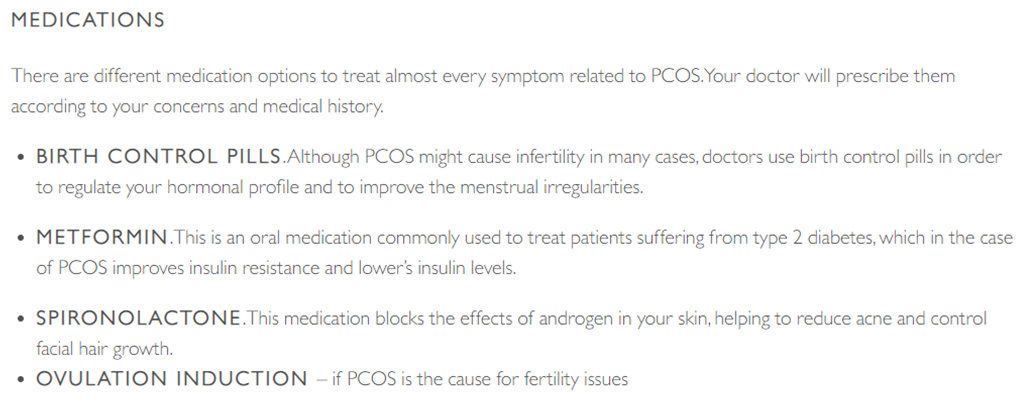What Is Polycystic Ovary Syndrome (PCOS) / PCOS Disease
Polycystic ovary syndrome, also referred to as Polycystic Ovary Disease or PCOS Disease, is a very common hormonal disorder affecting a lot of young women during their reproductive years. The principal problem related to this condition causes women to have irregular menstrual periods. Also, the ovaries might develop some small fluid collections (cysts) which cause decreased egg production.
Common Signs and Symptoms of PCOS Disease
When PCOS presents varies from women to women. It can develop as soon as puberty or many years later. The symptoms also vary between women. Some of the most common symptoms include:
- Irregular menstrual periods
- Symptoms of androgen excess, such as excess facial and body hair, acne and sometimes, baldness
- Polycystic ovaries. Your ovaries might contain follicles that surround the eggs, causing the ovaries to misfunction and in some cases result in infertility
PCOS Disease Causes
Although exact cause of PCOS is unknown, there are some risk factors related to this condition including:
- Insulin resistance. If as a result of this condition, your body cells become resistant to the action of insulin, the blood sugar levels will rise, sending a pathologic signal to the pancreas to produce more insulin.
- PCOS family history
- Excess production of ovarian androgen
- Obesity
PCOS Disease Diagnosis
There is no specific medical test to diagnose PCOS, but there are some inclusion criteria that your doctor will assess and part of an exam and reviewing your medical record A manual pelvic exam.
- A pelvic or transvaginal ultrasound
- Blood tests, including hormone profile
PCOS Disease Treatment
The main goal when treating PCOS is to reduce the risk factors associated and treat the possible consequences on your body and health. There are different options to treat PCOS, including lifestyles changes or medication. According to the severity of your symptoms, your doctor will suggest one or the other.
Lifestyle Changes
In order to reduce the effect of insulin resistance in your body, your doctor might recommend a low-calorie diet combined with exercise in attempt to lose weight. This is the single most important factor in the management of PCOS and might able to reverse quite a few of the symptoms.


-> Back to Specific Gynaecological Disorders
BOOK AN APPOINTMENT










